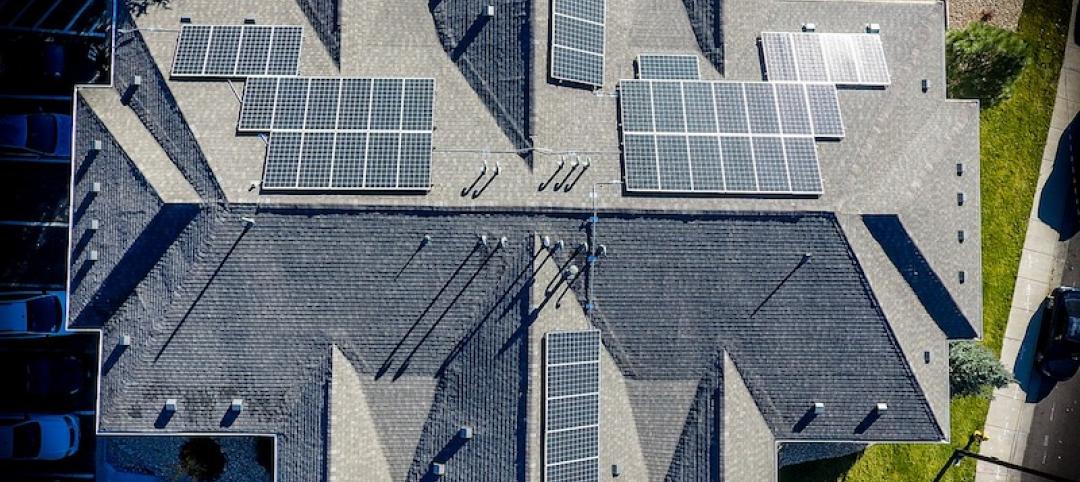The 2021 Hospital Energy and Water Benchmarking Survey by Grumman|Butkus Associates found that U.S. hospitals’ use of fossil fuels is declining since the inception of the annual survey 25 years ago, but electricity use is dipping more slowly.
The average combined Btu/ft2 (electricity plus gas/steam) for participating facilities was 236,743 in this year’s survey, up from 233,491 in 2019. “However, interpretation of year-to-year trends should be tempered by the realization that the respondent pool for the 2021 survey was different from the pool from the 2020 edition, due to the stresses that COVID-19 response placed on the healthcare facility personnel who normally participate, particularly during 2019,” according to a news release.
Hospitals’ average carbon footprint has remained fairly steady at 50 to 60 pounds of CO2 equivalent per square foot per year since GBA began calculating carbon data in 1999. CO2 footprint in 2020 was up from a low in 2019 (likely attributable to a change in respondents for the 2020 survey), but still shows an 18% decrease from 2018.
“To meet the ambitious goals put forth by the Biden Administration, hospitals will have to achieve much more significant reductions in the near term,” says GBA-Illinois Chairman Dan Doyle. “These reductions can only be achieved by implementing larger and more costly retrofits of existing buildings.
“The drive to decarbonize will also require building owners to embrace fuel switching to renewable-based energy sources. Many leading healthcare systems are implementing on-site renewables (usually solar photovoltaic systems), as well as off-site renewables, often funded through Power Purchase Agreements (PPA) to purchase some or all of their electricity.”
Related Stories
Codes and Standards | May 24, 2018
‘Amazon tax’ could slow Seattle’s construction boom
City imposes employer head count tax to fund affordable housing.
Codes and Standards | May 23, 2018
AAMA releases 2017/2018 fenestration market studies
Offers forecasts of industry trends.
Codes and Standards | May 22, 2018
Registration open for 2018 National Energy Codes Conference
U.S. Department of Energy event to be held July 15th-17th in Austin.
Codes and Standards | May 21, 2018
New standard tests quietness of floors
ASTM International method will help manufacturers test their flooring materials.
Codes and Standards | May 17, 2018
California will require solar panels on most new homes
Projected to add $10,000 to cost of new homes.
Codes and Standards | May 16, 2018
New resources offer tips on off-site construction
NIBS documents address using pre-cast concrete, and commercial and legal considerations of modular construction.
Codes and Standards | May 15, 2018
Blast testing of loaded mass timber structures yields positive results
Four tests covered a spectrum of blast loads.
Codes and Standards | May 14, 2018
Maryland makes general contractors liable for failure of subs to pay employees
GCs could have to pay for up to three times the wages owed.
Codes and Standards | May 10, 2018
Data collection, machine learning boost building efficiency
Sensors, software algorithms squeeze out waste.
Codes and Standards | May 9, 2018
OSHA and state safety agencies write more than 100 silica citations in 6 months
Actions tending to come with investigation of other site conditions.
















